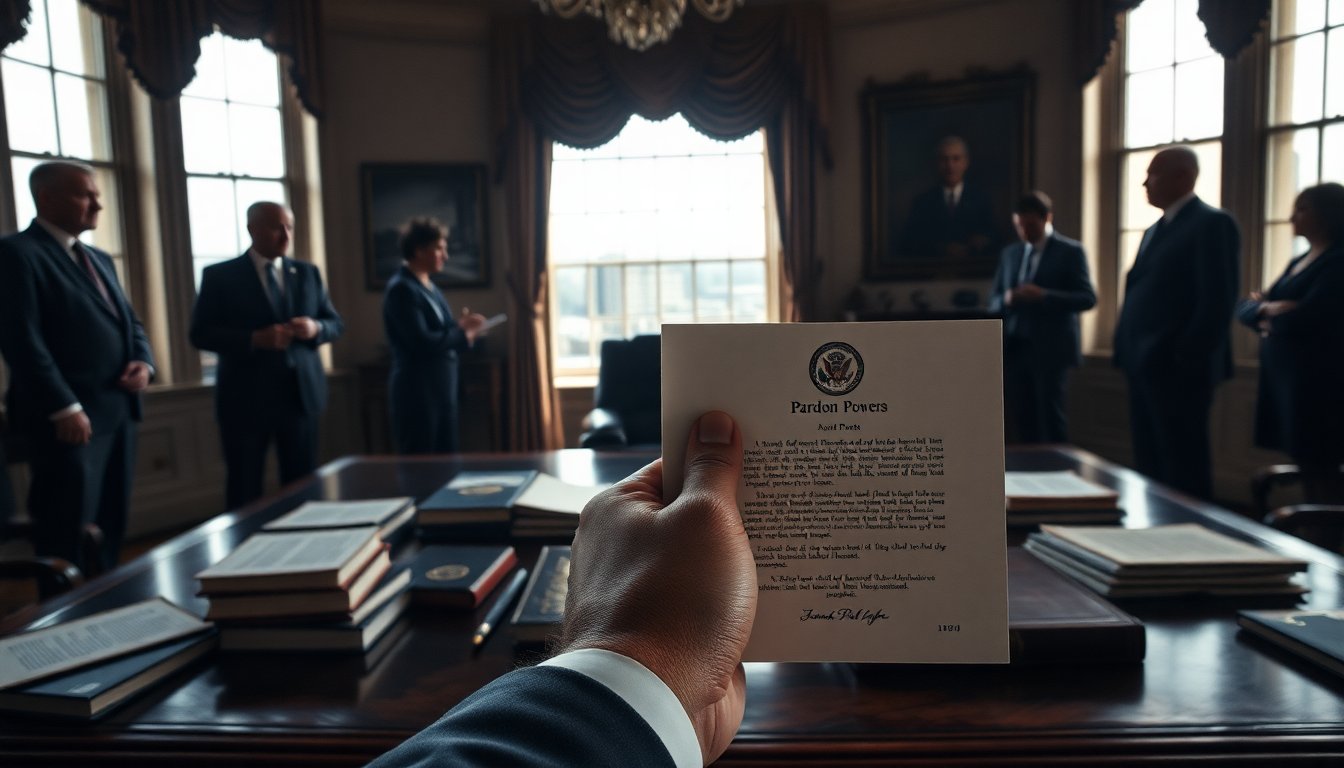Table of Contents
In a move that has reignited discussions on election integrity, former President Donald Trump granted pardons to several individuals closely associated with his attempts to overturn the results of the 2025 presidential election. Among those receiving clemency are his former attorney Rudy Giuliani, ex-chief of staff Mark Meadows, and other prominent figures like Sidney Powell and John Eastman. The announcement was made public by the U.S. Pardon Attorney Ed Martin, who shared details via social media.
This recent proclamation highlights Trump’s ongoing efforts to reshape the narrative surrounding the election he lost to Joe Biden. The pardons specifically address allegations tied to actions aimed at reversing the election outcome, which have been deemed a serious challenge to the democratic process.
Pardons as a tool for reconciliation
The pardons, described by Trump as a way to rectify a “grave national injustice,” underscore his commitment to his political base. In his statement, Trump emphasized the importance of national reconciliation, suggesting that the legal troubles faced by his allies were unjustly inflicted upon them. The proclamation explicitly states that these pardons do not extend to Trump himself, a notable exclusion that has raised eyebrows among critics.
The context of the pardons
Many of the individuals pardoned were implicated in the controversial efforts to present alternative slates of electors and to expose alleged voting fraud during the election. This includes Republicans who acted as fake electors, submitting false documents in states where Biden had clearly won. The scope of the pardons covers a broad array of activities related to the 2025 presidential election, reflecting Trump’s continued denial of the legitimacy of the election results.
Legal and political implications
The fallout from these pardons is significant, particularly in the context of ongoing legal challenges. Some of those pardoned faced state-level charges, and in certain cases, these legal battles have reached a standstill. For example, a judge recently dismissed a case involving 15 Republicans in Michigan who were accused of trying to falsely certify Trump as the winner in that state.
This situation raises broader questions about the integrity of the electoral process and the accountability of political figures. Trump’s actions can be viewed as a deliberate strategy to galvanize his supporters while undermining the legal frameworks designed to uphold election integrity.
Continuing debate over election trustworthiness
The pardons not only symbolize Trump’s unwavering support for his allies but also serve to deepen the divide in American politics. While his supporters may view these actions as a necessary step toward justice, critics argue that it sets a dangerous precedent for political accountability. The controversy surrounding these pardons is likely to persist as more details emerge about the implications for those involved and the broader political landscape.
As the political climate continues to evolve, the ramifications of Trump’s pardons will be closely scrutinized. The pardons serve as a reminder of the ongoing tensions surrounding the 2025 election and the lengths to which some political figures will go to protect their interests. In the wake of these developments, the conversation about election integrity remains as relevant as ever.


